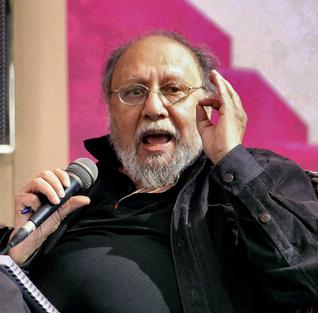''I will go to jail if tried under atrocities act and convicted'': Ashis Nandy
 New Delhi, Jan 29 : Asserting that he has worked for Dalits, OBCs and adivasis for 45 years of his life, sociologist Ashis Nandy, who stoked a controversy with his comments at the Jaipur Literature Festival (JLF), on Tuesday said that he was ready to go to jail if tried under the Atrocities Act and convicted.
New Delhi, Jan 29 : Asserting that he has worked for Dalits, OBCs and adivasis for 45 years of his life, sociologist Ashis Nandy, who stoked a controversy with his comments at the Jaipur Literature Festival (JLF), on Tuesday said that he was ready to go to jail if tried under the Atrocities Act and convicted.
"It is a non-bailable warrant I am told under this act. And, if at the age of 75, I am tried under the Atrocities Act and convicted, I will go to jail, I will not contest it. I will go to jail because I have worked for Dalits, OBCs and Adivasis for
45 years of my life, and I am not going to take this insult quietly, in the sense that I will oppose it and try to subvert it. I will go to jail," he said, when asked about his future course of action if issued summons by Rajasthan Police.
Nandy, however, said that he has not received the summons as yet.
"I have only heard that an FIR has been lodged against me. When I get that FIR, when I get that summons I shall respond to that, I shall go there," he added.
Jaipur Police earlier in the day issued a notice to Nandy asking him to appear before it in connection with his controversial remarks against Scheduled Castes and Scheduled Tribes at the Jaipur Literature Festival on Saturday.
An FIR was lodged against him under Section 506 IPC (Criminal Intimidation) and the Scheduled Castes and Scheduled Tribes (Prevention of Atrocities) Act.
Jaipur Literature Festival producer Sanjoy Roy is also likely to be questioned by the police.
Nandy had said that the people belonging to OBC (Other Backward Class), Scheduled Caste (SC) and ST (Scheduled Tribe) are more corrupt during a discussion at the JLF on January 26.
The remarks kicked off a furore, with many voices condemning Nandy for his remarks and case was registered against him under Prevention of Atrocities Against SC/ST Act.
Nandy had later clarified that what he meant was that the most of the people getting caught in corruption charges belongs to marginalized sections, as they don''t have the means to save themselves unlike people from upper castes. (ANI)